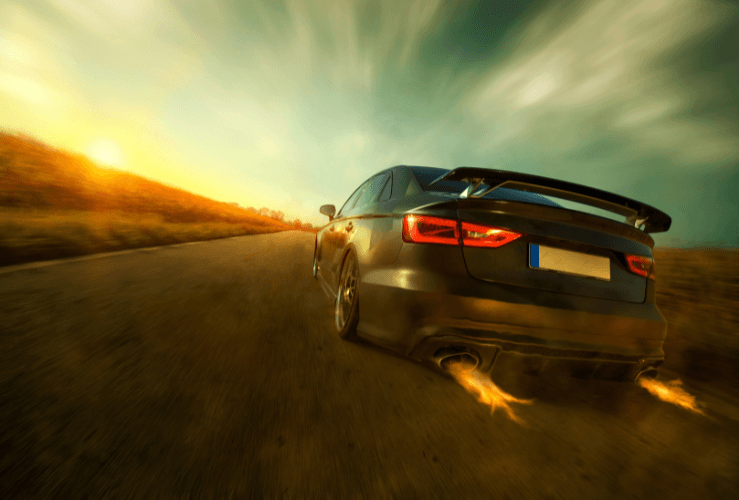Has your car started to backfire?
If so, it can raise concerns that your car has a serious defect.
It can also be annoying and somewhat embarrassing if you start to experience a cylinder or your exhaust backfire.
What causes a car to backfire?
The chances of most modern fuel-injected cars ("port" or "direct") backfiring are very low because of the way their intakes are designed.
Whilst any car can backfire, older cars can be more susceptible to backfiring.
Main causes for a car to backfire:
Spark plugs in the wrong place
If your spark plugs are incorrectly installed it will cause the pistons to fire out of order.
For example, if spark plug 1 is placed in the position of spark plug 4, it will ignite the air-fuel mixture in the wrong piston (4) and pass through the carburetor.
Bent valve
Poor piston timing might damage a valve, which results in a leak, causing a detonation in the piston which spreads into the carburetor.
Poorly-adjusted ignition timing
This happens when a spark is fired while the corresponding intake valve is still open. This creates a flame that ignites the air-fuel mixture and travels back through the carburetor - the backfire.
This is one of the least likely causes of a backfire.
Afterfire
Technically, a "backfire" in the exhaust system is called an “afterfire”.
Typically a flame is emitted from the exhaust pipe.
Main causes for an afterfire / exhaust backfire:
Rich air-fuel mixture
Too much fuel and too little air means some fuel can pass into the exhaust, and will, if it's hot enough, cause a combustion in the exhaust pipe.
Ignition delay
If ignition occurs in the piston too late, the explosion can continue into the exhaust manifold - creating an afterfire.
Lean air-fuel mixture
A lean air-fuel mixture burns more slowly than a rich air-fuel mixture. This can mean combustion takes place for longer, spreading into the exhaust system and firing out of the exhaust pipe.
A lean air-fuel mixture could be caused by:
- A fault in the ECU (Engine Control Unit)
- Vacuum leak - causing excess air and thus a low air-fuel mixture.
- Fuel injector defect - when the injector does not inject the right amount of fuel (too much air).
- Fuel pump fault - meaning the amount of fuel entering the engine is insufficient.

Backfiring cars: Is it bad for your car to backfire?
If your car backfires or afterfires it is unlikely to cause any damage to your engine or exhaust system.
However, such a scenario does mean there is already a fault in one of your car's components, and it should be addressed swiftly - if only to stop the loud bangs coming from your exhaust.
Why do high-performance cars backfire?
Many high-performance cars are deliberately designed to backfire.
Indeed, for many owners is a big factor in them deciding which car they buy in the first place.
For many supercars though you will have the ability to change to a normal /comfort mode that you drive in that keeps some valves in the exhaust closed.
How do you fix a backfire?
If you don’t own a high performance car, which is designed to backfire, but you are experiencing you car backfiring, you probably want to find a solution to stop this from occurring.
How do you stop your car from backfiring?
If you have found your car has started to backfire, the good news is that the issue can always be fixed once the backfire cause has been identified.
When looking to fix a backfire:
If you are experiencing your car backfiring, you should take your vehicle to a mechanic who will check various components to see if they are the cause of your vehicle backfiring.
These can include:
- Spark plugs for any sign of carbon buildup or corrosion.
- Spark plug wires power for signs of wear
- On older vehicles, with spark plug wires there will also be a distributor cap.
- Carburetor to see If it is bad, needs cleaning or adjusting
- Fuel injectors / fuel pump make need cleaning or replacing




